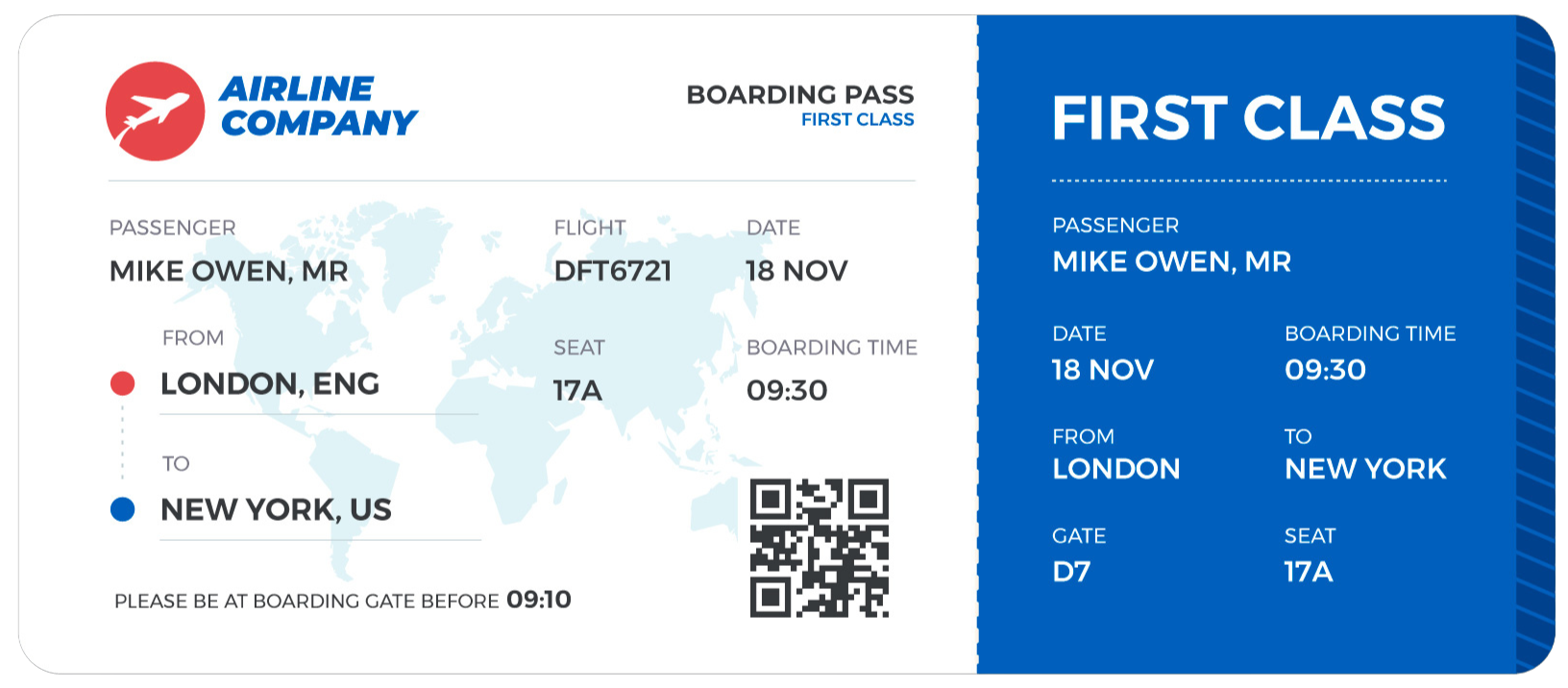Imagine walking into an airport, boarding pass clutched tightly in your hand.
Suddenly, you hear those dreaded words: “We’re overbooked.”
For frequent travelers, this scenario is all too familiar.
At some point, you or someone you know has likely been caught in the complicated world of airline overbooking.
What exactly is this practice?
And more importantly, why do airlines continue to use it?
In this guide, we’ll break down airline overbooking practices, revealing what they are, how they work, and What can you do about them.
Table of Contents
Key Takeaways
- Airlines overbook flights to reduce losses from no shows and maximize revenue. This ensures most seats are filled, even if some passengers cancel or miss their flights.
- Overbooking is managed through voluntary bumping, where passengers give up their seats for incentives, or involuntary bumping. Airlines prioritize less disruptive options before resorting to denying boarding.
- Passengers with late check ins, low cost tickets, or no seat assignments are at higher risk of being bumped. Frequent flyers or those with early check ins often have better protection.
- Compensation policies for overbooking differ by country, with the U.S. offering higher caps for delays compared to India’s limits. Passengers should know the rules of their departure country to claim their rights effectively.
- Travel insurance can cover additional costs like meals, hotels, or new flights caused by overbooking. However, coverage depends on the plan, and basic policies may exclude this protection.
- Arriving early, securing a seat assignment, and staying informed about passenger rights can reduce your chances of being bumped. Being prepared can also help you negotiate better compensation if overbooking occurs.
What is Overbooking?
Overbooking is a strategic practice in airline revenue management. It’s a calculated risk that airlines take to maximize their operational efficiency.
Airlines intentionally sell more tickets than available seats on a flight. This practice might seem puzzling or even unfair to passengers.
But for airlines, it’s a critical financial strategy designed to minimize empty seats and potential revenue loss.
What is Airline Bumping?
Airline bumping is when an airline removes passengers from a flight because there are more tickets sold than seats available.
It’s basically the airline’s way of saying, “Sorry, but you can’t fly on this plane right now.”
When a flight is overbooked, the airline faces a critical decision. They must manage the excess passengers while minimizing disruption and customer dissatisfaction.
This process can unfold in two primary ways: voluntary and involuntary bumping.
Types of Airline Bumping
Airline bumping isn’t a one-size-fits-alll process. Different scenarios call for different approaches.
The following table breaks down the two primary types of bumping, helping travelers understand what to expect when an airline oversells a flight.
Bumping Type | Description | Compensation | Passenger Control |
Voluntary Bumping | Airlines seek passengers willing to take a later flight | Travel vouchers, meal credits, cash incentives | High Passengers choose to participate |
Involuntary Denied Boarding | Passengers are removed from a flight without their initial consent | Mandatory compensation based on delay length and ticket price | Low Airline makes the final decision |
What happens when an airline needs to remove passengers from an overbooked flight?
The process begins with a call for volunteers. Airlines prefer this approach as it’s less disruptive and more customer-friendly.
In voluntary bumping, passengers have the opportunity to negotiate. Some travelers even view these situations as a chance to earn extra travel credits or cash.
Airlines typically start by offering modest compensation and may increase the incentive if not enough volunteers step forward.
When voluntary options are exhausted, involuntary bumping becomes the last resort. This is where things get more complicated.
The airline must follow strict federal regulations about compensation and passenger treatment. Passengers bumped involuntarily have specific rights and can often claim more significant compensation.
Why Do Airlines Overbook?
Airlines operate on razor thin profit margins. An empty seat represents lost revenue that can never be recovered. By selling more tickets than available seats, airlines account for a predictable percentage of passengers who:
- Miss their flights
- Change travel plans
- Cancel at the last minute
What Is the No-Show Rule for Airlines?
Airlines employ sophisticated statistical models to predict no show rates. These models consider:
- Historical data for specific routes
- Season of travel
- Day of the week
- Time of day
- Passenger demographics
- Prior booking patterns
On average, airlines expect between 5-15% of booked passengers won’t show up for a flight.

Who Gets Bumped on an Overbooked Flight?
Airlines have specific criteria for selecting passengers to bump:
- Last-minute ticket purchasers
- Passengers who checked in later
- Those with the lowest fare class
- Passengers without seat assignments
Pro Tip: Your Check-In Strategy Matters
The earlier you check in and secure a seat assignment, the lower your chances of being bumped.
How to Get Money From an Overbooked Flight?
If you’re flexible with travel plans, volunteering can be profitable:
- Ask about compensation details upfront
- Negotiate for:
- Travel vouchers
- Upgrade to business class
- Hotel accommodations
- Meal credits
- Future flight discounts
What Happens if No One Volunteers to Get Off a Flight?
When a flight is overbooked, airlines typically seek volunteers willing to give up their seats in exchange for compensation, such as travel vouchers, cash, or hotel accommodations.
However, if no passengers come forward, the situation can escalate into what is known as “involuntary denial of boarding.”
In such cases, the airline has the authority to remove passengers based on its boarding priority policies.
These policies often prioritize factors like fare class, frequent flyer status, or check-in time.
For example, passengers traveling with children, those with disabilities, or unaccompanied minors may be less likely to be bumped.
If you’re selected involuntarily, the airline is usually required to provide compensation depending on how much the delay impacts your travel plans.
Airline Bumping Compensation: U.S. vs. Indian Regulations
Airline bumping compensation varies significantly across different countries. Understanding these variations can help travelers know their rights and potential recourse when faced with an overbooked flight.
Aspect | United States (DOT Regulations) | India (DGCA Regulations) |
Regulating Authority | U.S. Department of Transportation (DOT) | Directorate General of Civil Aviation (DGCA), India |
Eligibility | Applies to passengers involuntarily denied boarding due to overbooking, with confirmed tickets and checked in on time. | Applies to passengers denied boarding due to overbooking, holding valid tickets, and reporting at the designated time. |
Compensation Structure | Depends on delay duration and ticket price: <1 hour delay: No compensation 1–2 hours delay: 200% of one way fare (up to $775) >2 hours delay: 400% of one way fare (up to $1,550) | Depends on delay duration: Within 1 hour: No compensation 1–24 hours delay: Up to ₹10,000 >24 hours delay: Up to ₹20,000
|
Alternate Travel Options | Airline must offer alternative transportation at no extra cost or provide a full refund if preferred. | Airlines must arrange alternate flights or refund tickets along with the prescribed compensation. |
Transparency Requirements | Airlines are required to disclose overbooking practices and compensation policies publicly. | Airlines must follow the DGCA’s passenger rights charter and provide clear details about compensation. |
Scope of Regulations | Applies to domestic and international flights departing from the U.S. | Applies to domestic flights and international flights departing from India, if operated by Indian carriers. |
Penalty for Non Compliance | Airlines face financial penalties for failing to follow compensation or rebooking requirements. | Airlines can be fined or penalized for failing to comply, with recent fines of up to ₹10 lakh imposed on violators
. |
Key Differences:
- Compensation Caps: U.S. regulations provide higher compensation caps compared to India’s.
- Delay Tiers: U.S. compensation increases incrementally with delays, while India’s framework uses broader time bands (1–24 hours, >24 hours).
- Passenger Awareness: U.S. airlines are mandated to publish their compensation policies, whereas Indian carriers follow DGCA guidelines with less direct passenger communication.
This comparison reflects the distinct approaches of both countries toward passenger protection, with the U.S. favoring financial compensation and India focusing on standardized time bound payouts.
Sources: Flightrights
Does Travel Insurance Cover Overbooking?
Yes, in many cases, but not always. Whether you’re covered depends on your specific policy.
Most comprehensive travel insurance plans provide some protection for overbooking, but the details and extent of coverage vary.
Let’s break it down.
When Are You Covered?
- Reimbursement for Additional Expenses: If you’re stuck because your flight is overbooked, travel insurance may cover extra costs like meals, a hotel stay, or transportation while you wait.
- Alternative Travel Costs: If the airline can’t rebook you quickly, your policy might help pay for another flight or alternate transportation to get you to your destination.
- Compensation for the Inconvenience: Some plans offer payouts for the hassle of delays caused by overbooking, especially if it leads to missing important connections or events.
When Are You Not Covered?
- Basic Plans: Entry level policies might skip overbooking coverage entirely.
- Airline Compensation: If the airline provides compensation, your insurer might not step in unless your expenses exceed what the airline covers.
Pro Tip
Always review the “trip delay” or “trip interruption” section of your policy. Look for specific terms like “denied boarding” or “overbooking” to confirm if you’re covered. If in doubt, call your insurer for clarification.
Why Consider Travel Insurance?
While airlines are required to compensate passengers for overbooking in many cases, travel insurance can cover additional expenses or fill in gaps when airline compensation falls short.
It’s especially helpful during peak travel seasons or for long haul flights where delays can cause significant disruption.
So, while the answer is often “yes,” the key is choosing the right policy and knowing your coverage details before you travel. Keep your receipts handy just in case!
Frequently Asked Questions
Is it better to cancel a flight or just not show up?
Canceling a flight is better because you may receive a partial refund or credit, whereas no shows typically forfeit any compensation.
Can a plane kick you off for overbooking?
Yes, airlines can deny boarding due to overbooking, but they usually offer compensation or rebooking options to affected passengers.
What happens if a flight is overbooked and no one volunteers?
If no one volunteers, airlines may deny boarding to passengers based on specific policies, offering compensation as per regulations.
Is overbooking flights legal in India?
Yes, overbooking is legal in India, but airlines must follow compensation guidelines set by the Directorate General of Civil Aviation (DGCA).
Do airlines give you cash for overbooking?
Airlines may offer cash, travel vouchers, or other compensation for overbooking, depending on their policy and local regulations.
What happens if an airline is overbooked?
Overbooked airlines seek volunteers to give up seats; if none are available, some passengers may be denied boarding with compensation provided.
Turn Overbooking into an Opportunity
Overbooking might seem like a hassle, but it doesn’t have to ruin your travel plans. By understanding why airlines overbook and knowing your rights, you can handle these situations with ease.
Checking in early, staying informed, and being flexible can help you avoid being bumped or even turn it into a win with travel credits or upgrades. Sometimes, a little preparation and negotiation can make overbooking work in your favor.
So next time you hear, “We’re overbooked,” stay calm and confident you’ve got this!






